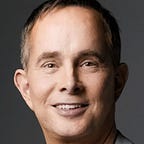The Richest Live 14.6 Years Longer — and the Gap Is Growing
I recently ran across a Stanford University study that analyzed 1.4 billion federal tax returns along with Social Security mortality data to determine the relationship of income to life expectancy (read the full study).
Here are the key findings.
First, higher income is associated with greater longevity. Among men, the richest 1% live an average of 14.6 years longer than the poorest 1%. The wealthiest women live 10.1 years longer than the poorest.
Second, the gap is growing wider. Between 2001 and 2014, life expectancy grew 2.34 years for men and 2.91 years for women in the top 5% of the income distribution. Men and women in the lowest 5% income group had only a negligible change in the same period.
Some have jumped on this data as one more reason why we must do something about income inequality. The rich aren’t just getting richer; they’re living longer, too. This does seem unjust.
On the other hand, is it really a surprise that people with lots of money live longer? They tend to have healthier diets, get better healthcare, have more immediate access to emergency healthcare, live in safer neighborhoods, and avoid hazardous careers.
I’m surprised the difference is only 2–3 years, frankly. And I’m not sure the government can do anything to change this.
The upper class gained 2–3 years of life in just 13 years
The real surprise to me was how quickly lifespans can increase. In a single 13-year period, we (at least those in the upper income levels) somehow managed to generate an additional two or three years of life. That’s great news! Now let’s do the same for the other 95%.
The lifespan increase also suggests that the kind of life extension that my good friend Patrick Cox discusses in his forthcoming book isn’t so outlandish.
If one (admittedly favored) group can, in just a little more than a decade, add 2–3 years to its lifespan without consciously trying, imagine what concerted efforts could do. Such efforts are underway right now in labs all over the globe.
The only way to close the gap and prevent the coming retirement crisis
It is perfectly reasonable to think that the next decade will bring advancements that add many years to our lifespans. Medical cures for obesity, heart disease, and cancer are all foreseeable within the next 10 years (though lifestyle will continue to be an issue).
Advances in medical biotech will lead to a radical extension in lifespans — and healthspans. (Read my good friend Patrick Cox’s special report on recent anti-aging breakthroughs.)
As with all new technologies, these will be expensive at first. They won’t be instantly available to everyone, everywhere. But neither was penicillin, or the polio vaccine, or heart transplant surgery.
They took time to spread. I expect life-extension technology to propagate faster, though, for the simple reason that it makes economic sense to keep people alive and productive as long as possible. This will be doubly true in a world with fewer young people.
Further, much of the new life-extension technology is going to have the same scalability as digital technology has had. We all know how phones and computers get better and cheaper. Medical care is beginning to ride the same technological wave as our favorite digital devices.
Having said that, we must recognize that extending lifespans will aggravate the Graying World problem. If we persist in saying that everyone can retire at 65 or 70, while extending typical lifespans to 100 or more, the dependency ratio will skyrocket. Workers will be supporting their parents and multiple layers of grandparents.
That formula obviously won’t work — but it won’t have to if we can make tomorrow’s 80-year-olds as healthy as today’s 60-year-olds. People might be able to keep working until 85 and be happy about it.
Subscribe to Thoughts from the Frontline
Sign up for my free publication Thoughts from the Frontline where I uncover the truth behind and beyond the financial headlines.
